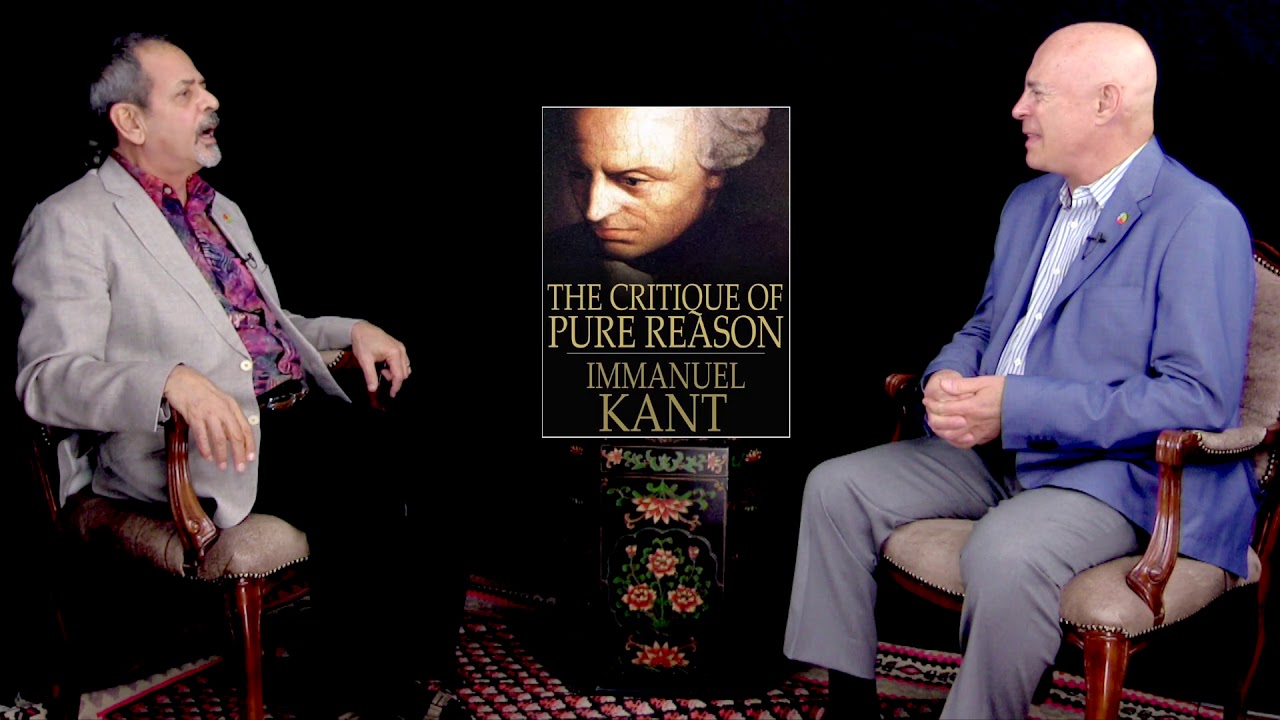New Thinking Allowed with Jeffrey Mishlove
Thomas Lombardo, PhD, is director of the Center for Future Consciousness in Glendale, Arizona. He is author of Future Consciousness: The Path To Purposeful Evolution; The Evolution of Future Consciousness; Wisdom, Consciousness, and the Future; and Mind Flight: A Journey Into The Future. He is also writing a four volume series, titled Science Fiction: The Evolutionary Mythology of the Future. The first volume will be published in 2018.
Here he describes the philosophical conflict between his intuitive sense that there is an external world and the logical argument of Bishop Berkeley that we can only know our own experience and not the world itself. Pondering this paradox, he says, literally made him dizzy. The logical implication of Berkeley’s philosophy is a position known as solipsism — in which one is compelled to acknowledge the lack of direct evidence that other minds exist at all. This is only an inference we make.
New Thinking Allowed host, Jeffrey Mishlove, PhD, hosted and co-produced the original Thinking Allowed public television series. He is a past vice-president of the Association for Humanistic Psychology; and is the recipient of the Pathfinder Award from that Association for his contributions to the field of human consciousness exploration.
(Recorded on October 31, 2017)
For a complete, updated list with links to all of our videos — as well as many other opportunities to engage with and support the New Thinking Allowed video channel — please visit the New Thinking Allowed Foundation at http://www.newthinkingallowed.org.
Source




Hi- chicken sandwich on whole wheat, no cheese. Thanks Tom.
How very true. You can never truly fully "know" another human being no matter how "close" you may think, feel, or believe them to be.
And @15:39, Reminds me of the discussion Feynman had with an artist-friend about the beauty of a flower.
The sign of one who has understood is to be dizzy. Neils Bohr tells the story of giving a talk to a room of positivists about the weird finding of the new science. Bohr said that the people nodded with him in agreement. This is were the famous quote of Bohr comes from, "if you are not made dizzy by quantum physics you haven't understood the problem". He meant that you can have a intellectual understanding and still not really get it.
Berkeley was a clever bishop. Karl Popper writes how Berkeley anticipated Mach and Einstein in many areas. Berkeley even criticised Newtons idea of absolute space.
I discovered most of these concepts 25 years ago in the writings of Robert Anton Wilson. And I wholeheartedly appreciate hearing them discussed again here! Maybe.
I can watch my hands and I can kick a rock, therefore there is an external reality independent of me/consciousness.
I can watch my hands and I can kick a rock in a lucid dream or in a 3D first person computer game, therefore…
Berkeley's idealism is not as weird as people appear to think. He's simply saying that the physical world is defined by particular conscious experiences. That reference to a material reality wholly independent of any consciousness is empty talk — it both doesn't do anything, and is in principle wholly unknowable.
It seems to me the scientific conception of the external world is somewhat more weird. It holds reality is entirely divest of colours, sounds, and smells, and really nothing is solid either. These qualitative experiences are supposedly entirely a creation of the mind. The world out there is wholly quantitative and devoid of anything qualitative.
As for this idea that idealism leads to the notion that only oneself is conscious, I don't understand the reasoning. First of all, regardless of how we think of the material world, we do not know that other people apart from ourself is conscious. Even if we equate consciousness with behaviour, how do we know behaviourism is true? And, of course, behaviourism is preposterous in any case.
So it is always possible other people are not conscious. Why is idealism considered to be especially problematic in this regard? Berkeley never said that nothing exists outside his consciousness, he said that the physical world exists by virtue of consciousness (any consciousness, not just his), that it is vacuous to talk about a physical world wholly independently of consciousness. However, this is not the case for other consciousnesses other than my own. Clearly it is not vacuous to suppose that others are conscious just as much as me.
Incidentally, people might be interested in a blog post by me on Berkeley's philosophy:
http://ian-wardell.blogspot.co.uk/2014/03/a-very-brief-introduction-to-subjective.html
I suggest looking into Rupert Spira for clear guidance into our personal experience of conscious-awareness.
Thank you.
Consciousness 2.pdf
Everything is fields, even consciousness. All of the information coming from your senses is gathered, sorted, synchronized and presented to the conscious mind along with associations from memory, assessment of any values, projections for the future and some form of experiential meaning. The system uses fuzzy logic and some form of dithering to hasten the decision making process. The conceptual structure has a fractal nesting such that, there is never any real separation but a continuous rearrangement of associations. Awareness is dependent on the levels of description associated with the nested structure. It is only irreducible to some resolution, these various components are chosen by the reticular activating system and give the awareness. At the same time another level of processing or integrated association is going on at the subconscious level, to some degree of resolution. These fractal arrangements could be acting like antennas reading fields in the quantum realm. The mind is a multidimensional mapping of some form of probability space where the information is stored in the relationships and the meaning is generated in time as a fluctuating exchange of relationships that follows a power scaling law in which very small scale fluctuations are far more common than large scale fluctuations. The best model to describe this would look like the internet, in which some aspect of spacetime is scale dependent, although some form of synchronization is necessary (entanglement) and the dimensions extend into the probability space as a computational geometry that can only be described approximately rather than discretely, in other words the idea of a three dimensional coordinate system is insufficient in describing the relationships. The mind uses these maps to represent the reality it is perceiving. There is no comprehensive description of the fields involved at present. One of these fields could be described as an intentional field in which the information about the emotional state is far more nuanced and energetic than the information about the logical structure contained in the field. The material expressions we encounter are generated by the fields and the brain is some form of antenna reading the fields.
https://independent.academia.edu/RickD1
Also thanks so much for doing this wonderful Videoseries
Don't like the relativism here. The way we come to some universal agreement what this thing in the background is is a hermeneutics process. We explain what we perceive to each other, clear out definitions and come to some agreement of what this thing is. That doesn't have to be some absolute truth or a knowledge of the thing in itself but some universal characteristics like it's history, the process of its creation and it's coming into beeing.
Really enjoyed the conversation. I think that MBT theory ties together all these concepts discussed in this video and is much easier to understand. Thanks for the great interview…
Great interview
First